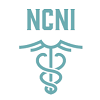It’s through the combined effort of different muscle groups and the nervous system that the body is able to permit mobility. Your body requires neurological signals to complete movements. From lifting a finger to diving head-first, your muscles need permission from the CNS (Central Nervous System) to complete the task.
In the case of neuromuscular disorders, that neural network is interrupted due to which messages aren’t relayed to the corresponding muscles. The electrical signal that the brain dispatches, travels through nerve pathways and prompts the release of acetylcholine. This chemical is sensed by receptors in the muscle tissue that register the command being dictated. Without enough receptors, you experience what is known as neuromuscular disorders.
Here are different classifications into which types of neuromuscular diseases are categorized.
Motor Neurone Diseases
In case the lower motor neurons die, that results in motor neurone diseases. Some common genetic motor neurone diseases include adult spinal muscular atrophy, infantile progressive spinal muscular atrophy (SMA1), intermediate spinal muscular atrophy (SMA2), and juvenile spinal muscular atrophy (SMA3). There are also other forms of motor neurone diseases, such as amyotrophic lateral sclerosis or Lou Gehrig’s disease.
Neuropathies
This group contains disorders that occur when the peripheral nervous system—nerve cells exclusive of the spinal network—is compromised. Charcot-Marie-Tooth disease is a genetic disease that’s caused by neuropathy. Other examples include autoimmune diseases like chronic inflammatory demyelinating neuropathy (CIDP) and hormonal disorder diabetes.
Neuromuscular Junction Disorders
Muscle contractions can be interrupted in case the gap between nerves and muscles isn’t bridged and the transmission of signals is blocked. This causes neuromuscular junction disorders, such as myasthenia gravis, which is an autoimmune disease in which the immune system starts producing antibodies. The antibodies obstruct the transmission channel of the nerves and deprive the muscles of essential information.
Myopathies Including Muscular Dystrophies
Muscular dystrophy refers to muscle wastage that’s caused by genetic mutations that compromise the repair of damaged muscle tissues. Congenital muscular dystrophy, Becker muscular dystrophy, Duchenne muscular dystrophy and facioscapulohumeral muscular dystrophy are some common types. Other kinds of myopathies result from the side-effects of medications such as cholesterol control drugs, or autoimmune conditions like polymyositis, or hormonal conditions like hypothyroidism.
At Movement Help, we offer specialized treatments for neuromuscular disorders. We urge you to consult movement disorder specialists at our clinic for whatever symptoms you’re experiencing. Our clinic is a trusted facility headed by Dr. Farzin Pedouim, a board-certified neurologist with a specialization in movement disorders.
We’re based in LA and are available via call at (949) 239-4410 or email at info@movementhelp.com.






